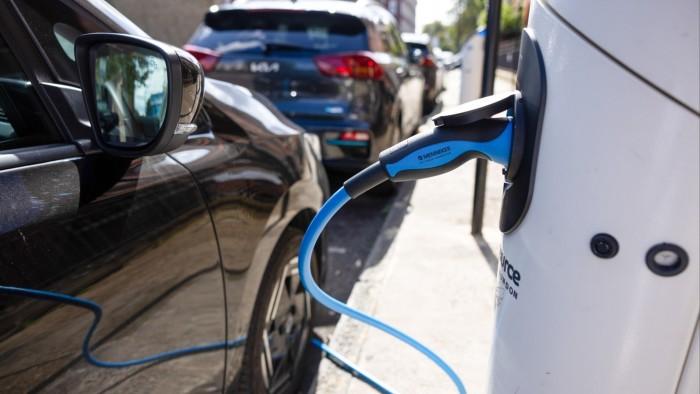In a world where sustainability is becoming increasingly important, electric vehicles (EVs) are emerging as a viable solution for the future of transportation. With their low carbon emissions and energy efficiency, EVs are revolutionizing the way we travel. Join me as we explore the many benefits of electric vehicles and why they are the key to a greener and more sustainable future.
1. The Environmental Impact of Electric Vehicles
Explore how electric vehicles are reducing carbon emissions and contributing to a cleaner environment.
Electric vehicles have gained popularity due to their significant environmental benefits. By running on electricity instead of fossil fuels, EVs produce zero tailpipe emissions, reducing air pollution and greenhouse gas emissions. This shift towards cleaner transportation is crucial in combating climate change and improving air quality.
Moreover, the energy efficiency of electric vehicles is much higher compared to traditional internal combustion engine vehicles. This means that EVs require less energy to travel the same distance, resulting in reduced energy consumption and a smaller carbon footprint.
With the increasing adoption of renewable energy sources, such as solar and wind power, the environmental impact of electric vehicles is further enhanced. Charging EVs with clean energy sources ensures that their overall lifecycle emissions are significantly lower compared to conventional vehicles.
2. The Economic Benefits of Electric Vehicles
Discover how electric vehicles can save you money and contribute to economic growth.
Electric vehicles offer numerous economic advantages for both individuals and society as a whole. While the upfront cost of purchasing an EV may be higher than a conventional vehicle, the long-term savings on fuel and maintenance can outweigh the initial investment.
EVs have lower operating costs since electricity is generally cheaper than gasoline or diesel. Additionally, electric vehicles have fewer moving parts, reducing the need for frequent maintenance and costly repairs.
Furthermore, the growth of the electric vehicle industry has the potential to create new job opportunities and stimulate economic growth. As more countries and companies invest in EV infrastructure and manufacturing, the demand for skilled workers in this sector will continue to rise.
3. Overcoming Range Anxiety with Improved Battery Technology
Learn how advancements in battery technology are addressing the issue of range anxiety and making electric vehicles more practical.
Range anxiety, the fear of running out of battery power while driving, has been a common concern for potential electric vehicle owners. However, significant advancements in battery technology have greatly improved the range and charging capabilities of EVs.
Newer electric vehicles now offer longer driving ranges, with some models exceeding 300 miles on a single charge. Additionally, the development of fast-charging infrastructure allows EV owners to recharge their vehicles quickly, making long-distance travel more convenient.
Moreover, ongoing research and development in battery technology are focused on increasing energy density and reducing charging times. These advancements will further alleviate range anxiety and make electric vehicles a practical choice for everyday transportation needs.
4. The Role of Government Incentives in Electric Vehicle Adoption
Explore how government incentives are encouraging the widespread adoption of electric vehicles.
Many governments around the world are implementing various incentives to promote the adoption of electric vehicles. These incentives can include financial incentives, such as tax credits and rebates, as well as non-financial incentives like access to HOV lanes and free parking.
These government initiatives aim to make electric vehicles more affordable and accessible to the general public. By reducing the upfront costs and providing additional benefits, governments are encouraging individuals and businesses to transition to electric vehicles and contribute to a greener future.
Furthermore, government support plays a crucial role in developing EV infrastructure, including the installation of charging stations and the expansion of renewable energy sources. These investments are essential for the widespread adoption of electric vehicles and the overall success of the transition to sustainable transportation.
Conclusion
Electric vehicles are paving the way for a more sustainable and environmentally friendly future. With their low carbon emissions, energy efficiency, and advancements in battery technology, EVs offer numerous benefits for individuals, society, and the economy.
By embracing electric vehicles, we can reduce air pollution, combat climate change, and save money on fuel and maintenance costs. Government incentives and investments in EV infrastructure further support the widespread adoption of electric vehicles.
As we continue to prioritize sustainability and seek innovative solutions, electric vehicles are leading the charge towards a greener and cleaner transportation system. Let's embrace this technology and drive towards a more sustainable future.
FQA
Are electric vehicles more expensive than traditional vehicles?
While the upfront cost of electric vehicles may be higher, the long-term savings on fuel and maintenance can outweigh the initial investment.
How far can electric vehicles travel on a single charge?
Newer electric vehicles offer longer driving ranges, with some models exceeding 300 miles on a single charge. The range is continuously improving with advancements in battery technology.
Are there enough charging stations for electric vehicles?
The charging infrastructure for electric vehicles is rapidly expanding. Governments and private companies are investing in the installation of charging stations to support the growing number of electric vehicles on the road.
What is range anxiety?
Range anxiety refers to the fear of running out of battery power while driving an electric vehicle. However, advancements in battery technology and the availability of fast-charging stations are addressing this concern.
Do electric vehicles contribute to reducing air pollution?
Yes, electric vehicles produce zero tailpipe emissions, reducing air pollution and improving air quality. By transitioning to electric vehicles, we can significantly reduce our carbon footprint.

